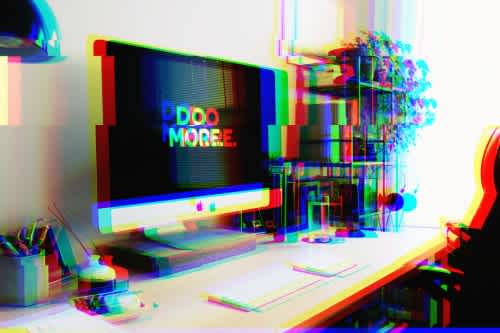A computer science degree is no longer a prerequisite for establishing a programming career these days. In fact, most of today’s successful programmers are self-taught while others participated in a coding boot camp that fast-tracked their learning process.
Programming and coding change rapidly – new programming languages and coding tricks emerge almost every day. The programming tricks you’re learning now will perhaps be slightly different before you even start practising your craft. For this reason, speed is an important factor when it comes to becoming a successful developer. Here are five tips to help you learn programming faster and start your career as soon as possible.
1. Define your purpose
Before you embark on the process of learning programming, you must come up with a clear reason for why you want to master this craft. Are you looking to develop apps in the future? Do you want to sharpen your current skills to get a promotion or land a better-paying job? Once you define your purpose, it’ll be easier for you to pick a good strategy for learning how to code.
If you want to develop apps or games once you become confident in your skills, then you should find out which programming languages are widely used in these sectors. While on this road, make sure to secure your privacy because as a newbie you may be a target for malicious attacks. Once you do this, you can identify areas that you need to focus on to achieve your goals.
2. Mine the gold in free online courses
You don’t have to spend all your savings on learning programming. Although there are many online college courses tailored for new programmers, there are tons of free beginner-friendly tools and tutorials as well. Sites like Programming Hub and Udemy offer many easy-to-understand lessons that can help you learn the basics of programming.
Some other courses you could benefit from include:
Many developers are also offering free courses that they’ve created themselves to help you get off on the right foot and continually learn the necessary skills to stay strong in the field. Scott Tolinski from LevelUpTuts or Lydia Hallie (aka The Avocoder) are great people to start with.
3. Start with the basics
Even if you already have some basic knowledge of programming under your belt, don’t fall into the trap of skipping the basic steps and diving straight to the advanced concepts. Instead, start with the elementary steps so that you can build a strong foundation for your programming knowledge. Some of these steps include an understanding of:
Programming environment
Variables
Operators
Data types and structures
You should always keep on reviewing these basics even as you keep learning. If you bypass the first stages of these, there are high chances that you’ll struggle or even get stuck when you start learning the more complex concepts.
4. Look for coding games to play
Introducing a little bit of fun into the process of learning programming is a smart move. If all you do every day is look at a coding book, you’re likely to get bored. Fortunately, there are many online sites like Codecademy that provide fun-packed games designed for programmers.
By injecting some fun into the learning process, you can master more coding skills faster without getting bored. With so many coding games out there, you’ll need to do some research to identify those that’ll suit your needs. Remember, these games come in different levels, so be sure to choose games that match your skills.
Some good places to start include:
CodinGame - learn more than 25 programming languages
CodeCombat - learn Python, JavaScript, CoffeeScript, or the Lua game scripting language
Ruby Warrior - As the name suggests, this one is for learning Ruby
CyberDojo - learn dozens of coding languages here
Raspberry Pi has become the most widely used micro-computer among beginner programmers and expert programmers alike. Getting your hands on this affordable and powerful micro-computer will help you learn programming quickly because it provides tons of learning opportunities. Who needs Alexa when you can program your own smart TV device or a tool that starts brewing your coffee in the morning? A great deal of Raspberry Pi operating systems feature excellent development tools that you can use to learn and sharpen your programming skills.
5. Keep practising and ask for help when necessary
If you want to learn to code faster and become an excellent programmer, then you must be willing to invest countless hours and lots of effort into it. Ensure you have enough software and the correct coding tools so that you can write error-free code.
Get a professional programmer who is active in the industry to guide you in charting your way as the ‘go-to programmer’. A competent coding expert will help you when you get stuck or you’re having difficulty understanding a certain concept. And don’t be afraid to ask for help. It’s better that you get help in the beginning, then have to fix mistakes in the future.
Another way to get help and support is by joining the local meetups in your area. Just type in ‘tech’ into the Meetup search bar and take your pick! The community is large and welcoming, and there’ll surely be a group to meet your need. Here you can make friends, network, or perhaps find a tandem coding partner, and overall find the encouragement you might need while you’re tackling the challenges of this journey.
A step at a time
Learning programming is not an overnight thing. It takes time, effort, and most importantly, willingness to learn. To speed up the learning process, you need to remain motivated and positive. Mistakes are bound to happen, but that doesn’t mean you give up. Instead, it means you learn from them and work towards becoming a better programmer.


